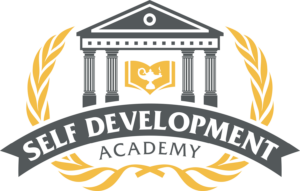One of the chief goals of education is problem solving. From history to science to math, we learn about problems solved in the past and understand a framework for solving future problems. But much like a math assignment isn’t nearly a problem to solved and shoved back in the backpack, there is great potential in sitting with the discomfort of a problem and not jumping to a solution.
Einstein said, “If I had an hour to solve a problem I’d spend 55 minutes thinking about the problem and five minutes thinking about solutions.”
As we support our children and develop our own problem-solving abilities, here are some good tips to keep in mind:
Clearly define the challenge.
A child grumbling about completing a book report might state that his current challenge is not wanting to do homework. However, upon further investigation, you might realize that the child didn’t understand some of the key terms in the book. Or perhaps he would be happy to work on the book report if it weren’t during the neighborhood kickball game. Or it could simply be a messy workspace and a dying pen that keeps him from working. Many times it’s more than one issue, but when we clearly define them, it’s less overwhelming.
Remember what has worked before.
If you’ve solved this exact problem before, solving it again is easy! If only every problem were as simple. Most of the time, we’ve worked through similar challenges and can draw on our experiences.
Where do you get your best thinking done? Do you need to brainstorm with a piece of paper and pencil? Go for a run and clear your head? Call a friend to discuss?
Sometimes we need to learn more information to fully diagnose the problem. Other times we can depend on experts or support to get us to the solution. It’s also beneficial to remember that just because something has worked in the past, it might not be the best solution now.
Think outside the box.
Try to view the challenge from different points of view. What factors contribute to the problem? How would this challenge be affected in a different scenario? What emotions or memories does this challenge bring up for you?
Consider a couple in their retirement years. Their big challenge is finding a contractor to fix the roof on their mountain home, because the man’s arthritis won’t let him do it himself. The wife, who usually vets all contractors, can’t do it because she’s on a prolonged visit with the grandkids in Florida. He could solve the problem by finding the first roofer on Yelp with good reviews.
Or he could think outside the box and find solutions to more than one problem at once. … Instead, they decide to sell the home, which goes for above asking price as-is in the crazy house market, and move to Florida to be near the grandkids, where the warmth and the salt water ease the arthritis!
Not many people can solve a math problem like Einstein could. But everyone can solve problems like Einstein did by focusing on them instead of the solution.
At Self Development Academy, we prepare our students for life. We align our curriculum to standards set by the Arizona Department of Education, and then we go a few steps further. Our rigorous and accelerated curriculum is captivating and challenging. If you are looking for an excellent charter school for your children’s education, contact us. Self Development Academy is recognized as one of the best K-8 charter schools nationwide. We have several campuses in Arizona: Phoenix, East Mesa, Mesa and Glendale. Find email and phone numbers here. We can’t wait to hear from you!
